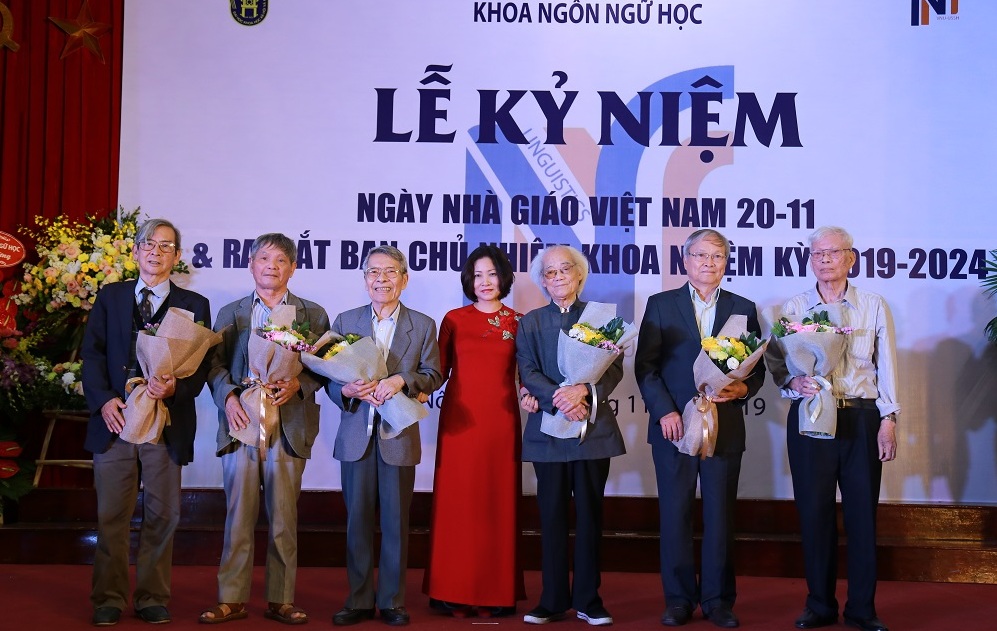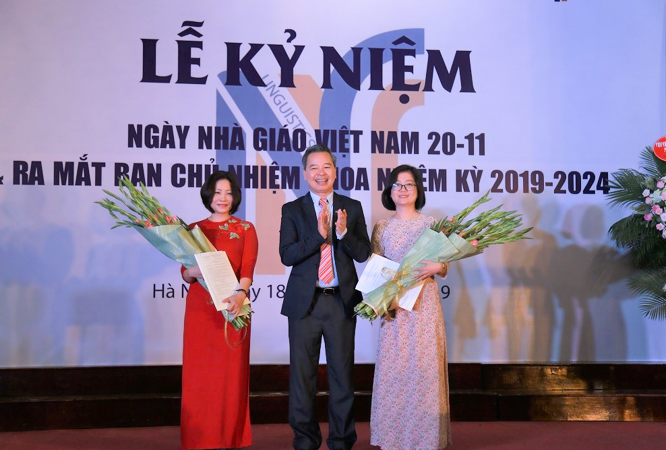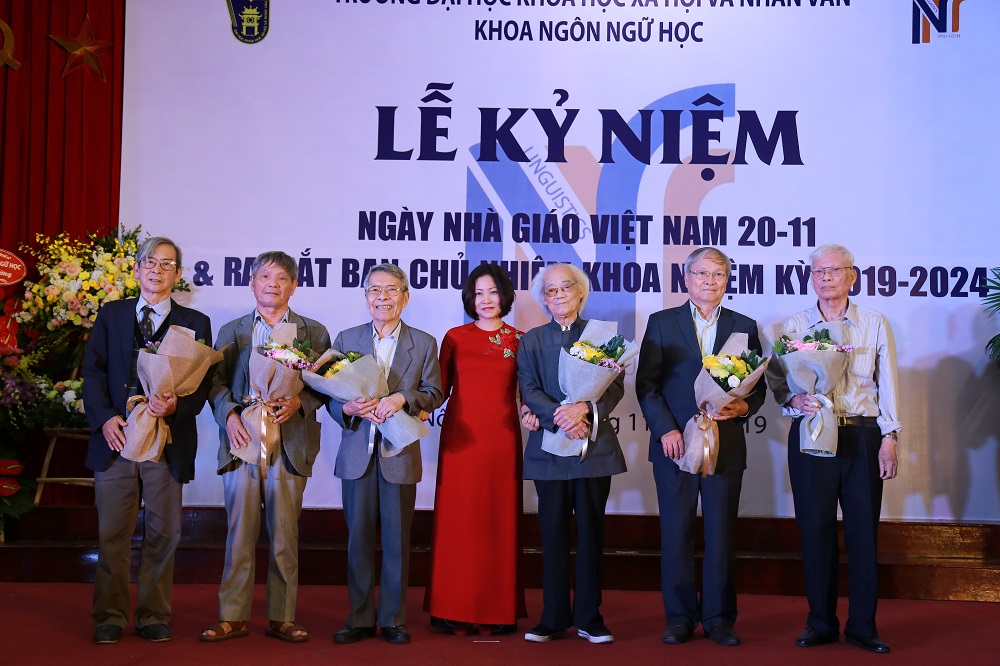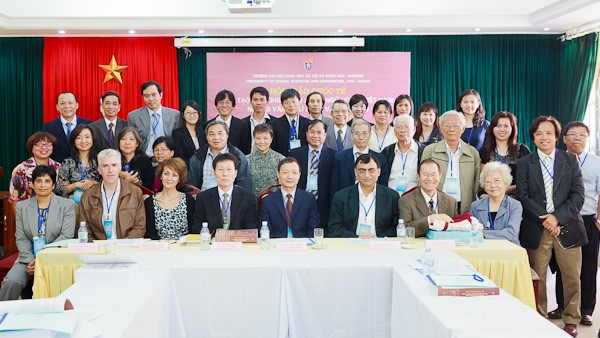
The Faculty currently has a total of 21 staff members, including 18 teaching staff and 3 administrative staff. One lecturer and one administrative staff member are currently pursuing doctoral studies abroad, one lecturer and one administrative staff member are teaching under a cooperation program in China, and one lecturer is conducting research in Japan. In reality, the Faculty currently only has 15 active staff members, while the Faculty of Linguistics offers programs at all three levels: undergraduate, master's, and doctoral. Despite numerous challenges, the Faculty's staff, including key personnel and Party members, are highly dedicated and capable, ensuring that all faculty members successfully complete their assigned tasks. Faculty members participate in all aspects of training, including teaching, lecture notes, curriculum development, thesis and dissertation guidance, and internship/practical training. The Faculty also performs quite well in training young staff members. All young faculty members with a doctoral degree or higher are assigned to participate in teaching, evaluating theses and dissertations, or supervising at the master's level, and co-supervising at the doctoral level.

In terms of training, the Faculty has achieved positive results: compiling and publishing two additional textbooks and two lecture notes; maintaining the enrollment numbers for postgraduate and doctoral programs; and although teaching collaborations with foreign partners have decreased due to the increasing saturation of demand for Vietnamese-speaking personnel in partner countries, the number of students has remained at around 200 to 300 in recent years. Strictly adhering to the University's training regulations, the Faculty's teaching staff continuously innovates teaching methods, increases student discussion and presentation time, and utilizes modern teaching aids. Student management is also given constant attention.
Scientific research activities have made significant progress during the past term: 4 national-level scientific research projects have been completed, 5 monographs have been published, and 11 international articles have been released. Most lecturers have met the research targets set by the University. The Faculty also co-organized one international conference in Guangxi, China; and organized 3-4 seminars annually with presentations by foreign professors. Most lecturers participate in at least one international conference each year (domestic and/or abroad). Approximately 6-8 staff members participate in academic exchange programs abroad each year. The exchange of lecturers and students with foreign universities consistently meets and exceeds the University's international integration targets.

In terms of external relations, the Faculty of Linguistics holds a leading position and prestige as a leading linguistics training institution in Vietnam. The Faculty actively promotes international relations with traditional partners and expands its partnerships with new ones; it has built collaborations in teaching and professional development with numerous linguistics research and teaching institutions both domestically and internationally. In particular, the Faculty is committed to effectively utilizing domestic and international experts to develop its expertise through participation in teaching activities, workshops, and seminars; and maintains a tradition of receiving foreign scholars for professional exchange as a way to foster professional development through collaboration. The Faculty is one of the few units that trains international students at all levels and programs. The quality of training is consistently strengthened and improved, earning the trust of its partners.

Regarding Party work, the Party Branch of the Faculty of Linguistics has done relatively well in directing the various mass organizations within the unit, such as the Trade Union, the Youth Union, and the Student Association. The Party Branch has consistently provided guidance and coordination to all activities of these organizations. The Party Committee regularly contacts the leaders of these organizations to address any issues arising within their ranks. The Party Branch has admitted two new student members and has 11 outstanding individuals who have received certificates for completing the Party awareness course.
The Faculty Party Branch consistently upholds a democratic spirit in the implementation and resolution of tasks, especially in addressing important issues within the Faculty such as organizational structure, external relations, training, and scientific research. All matters are discussed at the Party Branch meeting before the Faculty meeting to ensure consensus among Party members, only then are the tasks implemented and launched among all staff and lecturers in the Department and the Faculty. This affirms the leadership role and capacity of the Party Branch in all activities of the unit and the collective.
In accordance with Plan No. 827-KH/DU dated January 13, 2020, of the University Party Committee on organizing the Party Branch Congresses leading up to the 28th University Party Congress, term 2020-2025, the Linguistics Faculty Party Branch has taken preparatory steps to successfully organize its Party Branch Congress. The Linguistics Faculty Party Branch will have a new Party Committee for the 2020-2025 term, working alongside the Faculty Management Board, striving to successfully complete the set tasks: building a clean, strong, and stable Party organization; expanding and developing departments, perfecting the Faculty's training program structure at all levels; and making new strides in external relations and scientific research...
Author:Linguistics Department Party Branch